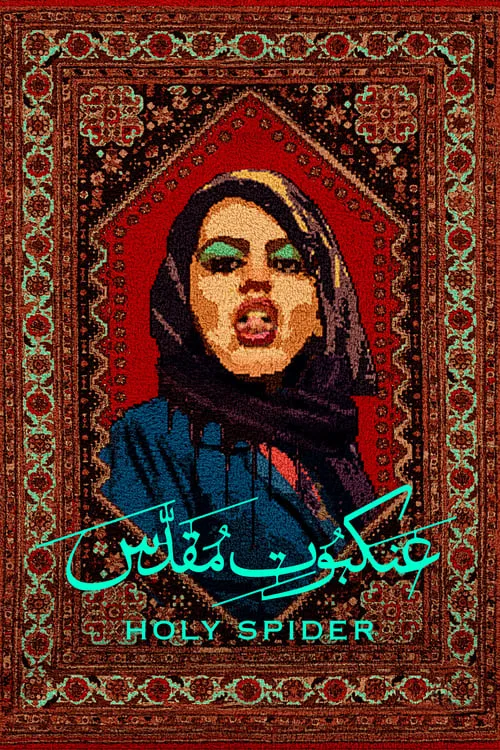Holy Spider

Plot
In the dark and foreboding city of Mashhad, situated within the conservative confines of Iran, a sense of menace lingers in the air. It is here that a young and ambitious journalist, Rahimi, sets out to unveil the dark truth behind a series of gruesome murders that have left the city reeling. Dubbed the "Spider Killer" by the authorities, the perpetrator believes himself to be on a divine mission to cleanse the streets of sinners, targeting the city's sex workers. Rahimi, an educated and fiercely determined woman, is driven by a desire to see justice served and to expose the corruption and hypocrisy that plagues her society. As she delves deeper into the investigation, she finds herself navigating a complex and treacherous world where the lines between right and wrong are constantly blurred. Rahimi's search for the killer takes her from the city's seedy underbelly to the highest echelons of power, where officials and clerics are either complicit in the killings or too afraid to speak out against them. Along the way, she must confront her own demons and confront the societal norms that have led to the exploitation and marginalization of sex workers. As she gets closer to the truth, Rahimi finds herself in a desperate cat-and-mouse game with the killer, who seems to be always one step ahead of her. The tension builds to a heart-pumping climax as Rahimi's determination to uncover the truth clashes with the killer's conviction that he is doing the will of God. Throughout the film, director Ali Abassi masterfully weaves a complex narrative that raises important questions about the role of Islam in Iranian society, the treatment of women, and the impact of social conservatism on the human psyche. The film is both a gripping thriller and a nuanced social commentary that offers a searing indictment of a society that values piety over compassion and justice. Rahimi's investigation is not just about uncovering the truth behind the killings; it's also about challenging the entrenched power structures that have enabled the Spider Killer to thrive. As she digs deeper, she uncovers a web of corruption and deceit that stretches all the way to the top of the Iranian hierarchy. One of the most striking aspects of the film is its portrayal of the women involved in the sex trade. Rather than presenting them as victims or stereotypes, the film shows them as complex and multidimensional individuals who have made choices that are often driven by desperation and poverty. The film's focus on the experiences of these women adds a layer of depth and nuance to the story, making it feel more authentic and raw. The film's use of location is also noteworthy, capturing the labyrinthine streets and bustling markets of Mashhad with a keen eye for detail. The cinematography is often stark and unflinching, reflecting the bleak and unforgiving nature of the world that Rahimi inhabits. The performances in the film are equally impressive, with Zar Amir Ebrahimi delivering a riveting portrayal of Rahimi. Amir Ebrahimi brings a sense of vulnerability and determination to the role, making Rahimi feel like a fully realized and relatable character. The rest of the cast is equally impressive, with standout performances from the actors playing the sex workers who are targeted by the killer. In the end, Holy Spider is a film that will leave audiences shaken and disturbed. It's a powerful indictment of a society that tolerates and even encourages violence against women, and a testament to the strength and resilience of those who refuse to be silenced. Despite its dark subject matter, the film is also a deeply hopeful one, offering a vision of a world where women are valued and respected, and where justice is served.
Reviews
Recommendations




